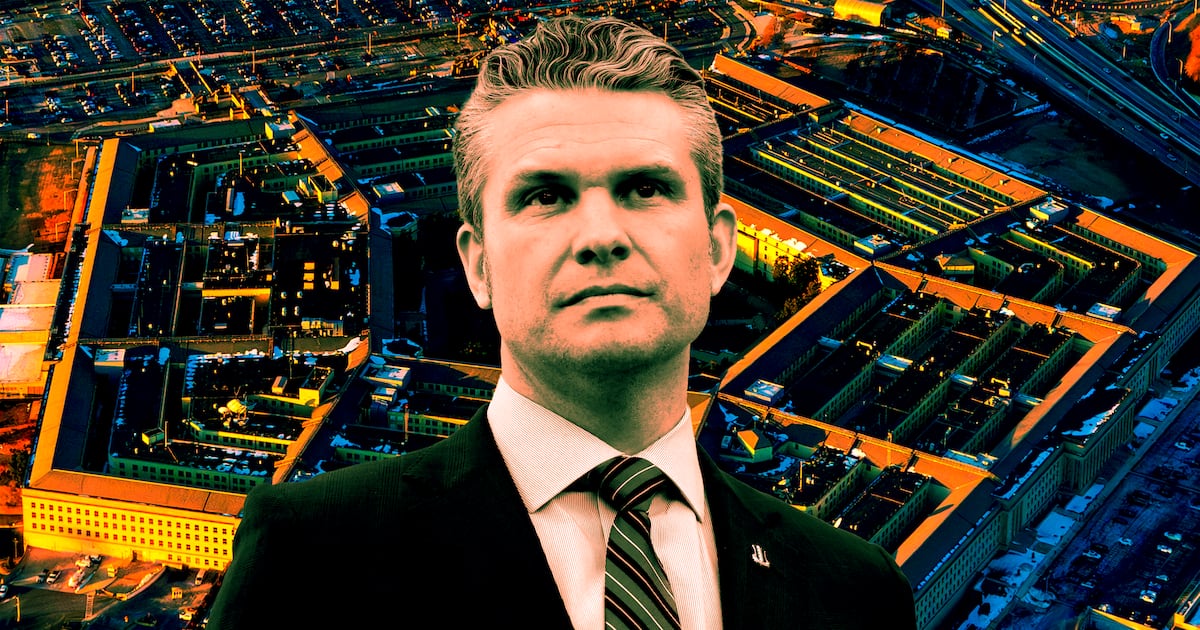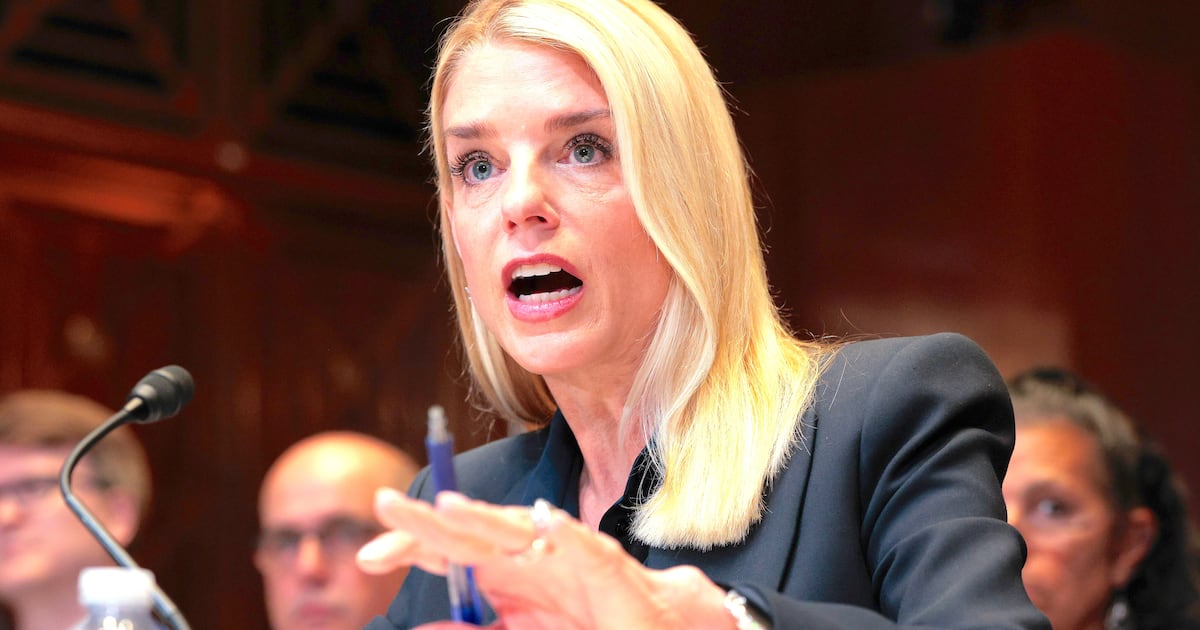The most consequential, progressive activism to occur in the state of West Virginia in years, if not decades, has taken place entirely without the national Democratic Party.
For over a week now, teachers in the Mountain State had been on strike over demands for better pay and new rules for the state employees’ health plans. They’ve been joined by bus drivers, cooks and other school employees in descending on the state capitol for what was, officially, the longest strike in state history.
For nine days, schools have been shuttered in all 55 counties and politics has come to a standstill as Senate GOP leadership has declined to join the state’s Republican governor, Jim Justice, in agreeing to a five percent raise for teachers (they wanted it at four percent).
On Tuesday, the governor announced an agreement with the legislature to hit that five percent mark—though it’s unclear if teachers will go along as the raise appears to be paid for by cutting general services and Medicaid. Through it all, national Democratic lawmakers, as well as the political party’s apparatuses, kept a distance.
Tom Perez, the chair of the Democratic National Committee and the former Secretary of the Department of Labor, has sent several tweets in solidarity with the striking teachers. But he has not joined them on the line. Nor has his top lieutenant, Rep. Keith Ellison (D-MN) a high-profile progressive and vocal labor champion. A spokesperson for the DNC said that they had been working with the West Virginia Democratic party but did not elaborate further.
Sen. Bernie Sanders (I-VT), who joined striking federal contract workers at the end of 2017, asked labor leaders about potentially going to West Virginia, a source with direct knowledge told The Daily Beast. But he was told to put off a trip until later. A spokesperson for the Senator said that there were “no plans as of now to go” but the Senator did send a statement of solidarity.
"There is no more important work than educating our young people. The teachers of West Virginia, and teachers throughout our country, deserve decent salaries and affordable health care,” Sanders said. “I stand with the teachers of West Virginia in their fight for justice and dignity."
The distance has fed the perception, for some, of a wasted opportunity for the Democratic Party. At a time when local activism is demanding—and potentially producing—tangible political gains, the political party most closely associated with those demands and those activists has remained afar, not associating itself too closely with the teachers or capitalizing organizational on their movement.
“Battered wife syndrome,” is how one labor activist put it. “People are still scared shitless in the Democratic Party of being connected to teachers unions and strikes. There was a period where the [former D.C. public school chancellor and noted bette noir for teachers’ unions] Michelle Rhee's of the world beat the crap out of teachers doing anything, even if we were fighting for more money for schools. We are in a transition period but we’re still scarred by that.”
But those in the trenches have largely concluded that it would be counterproductive for leading Democrats to have shown up in West Virginia. And with a deal near fruition, there is a palpable sense of relief that they haven’t.
“I think that the role [for the Democratic Party] is an accountability role after the fact. Who was with you and who wasn’t with you?” said Randi Weingarten, president of the American Federation of Teachers, in an interview with The Daily Beast. “They need to support these movements. But if you haven’t led the movement before, you can’t lead it now. That’s why the national Democrats are not in West Virginia. But it’s about the accountability after.”
Even those national Democrats who have agitated for the party to get more involved in places where they haven’t competed in the past, concede that the teachers’ strike was not the best vehicle for the party to latch on to.
“Sometimes when you want to get something done it is better to let the progressives at the grassroots do it,” said former DNC Chair Howard Dean. “If a national Democrat comes parachuting in, there could be a real backlash here.”
For a year now, the Democratic Party has grappled with the question of how much involvement is too much involvement in certain races and states across the country. The party took notably light touches (at least publicly) in the special elections in Georgia’s 6th congressional district and the Alabama Senate race—the former producing an expensive loss and the latter resulting in an unexpected win. It is doing the same in the special election in Pennsylvania’s 18th district next week.
The teachers’ strike in West Virginia presented a similar set of complications, mainly in that the state is not friendly political terrain for the Democratic Party. But the parallels aren’t perfect. The strike is not a political campaign. Nor are the strikers associated with a political party. Indeed, many of the teachers are Republicans.
“This is not a Republican thing, this is not a Democrat thing,” Corrine Full, an English teacher at Parkersburg High School, told The Daily Beast. “I couldn’t tell you who the bus drivers were at my high school before this, but now I’ve been on the picket line with them.”
Were Democratic leaders like Perez to come to the state to join the line, it would risk offending those educators and fracturing the movement.
“I think there is wisdom among the labor movement about keeping this a labor thing as opposed to a Democratic Party thing,” said Carolyn Fiddler, a top party operative with experience in both the labor movement and state-wide Democratic politics. “I think it has allowed them to have a lot of goodwill in the state right now.”
Teachers and local activists agreed with this assessment, telling The Daily Beast in interviews that they thought, strategically, it would be better to keep the focus squarely on West Virginia and not some broader effort to emphasize labor rights and collective action nationally.
“We have such a proud labor history in this state,” Jeanne Peters, of Wood County West Virginia’s Indivisible chapter, told The Daily Beast. “This is a West Virginia struggle, this is a West Virginia fight.”
Peters said that their specific chapter has been involved in coordinating food drives for the students as one of the major concerns teachers have is that those in need of school-supplied meals would no longer receive them while they were on strike. They’ve also been making calls to the state house members and senators, imploring them to take action.
But the political elements of their campaign will come later. Indivisible’s chapter in West Virginia is gearing up to conduct voter registration drives in the spring and summer—not concurrently with the strike—in order to harness the current political energy in the state.
“Something has been set on fire in this state,” Peters said. “A spirit of solidarity has been reignited that we have not seen in generations.”







